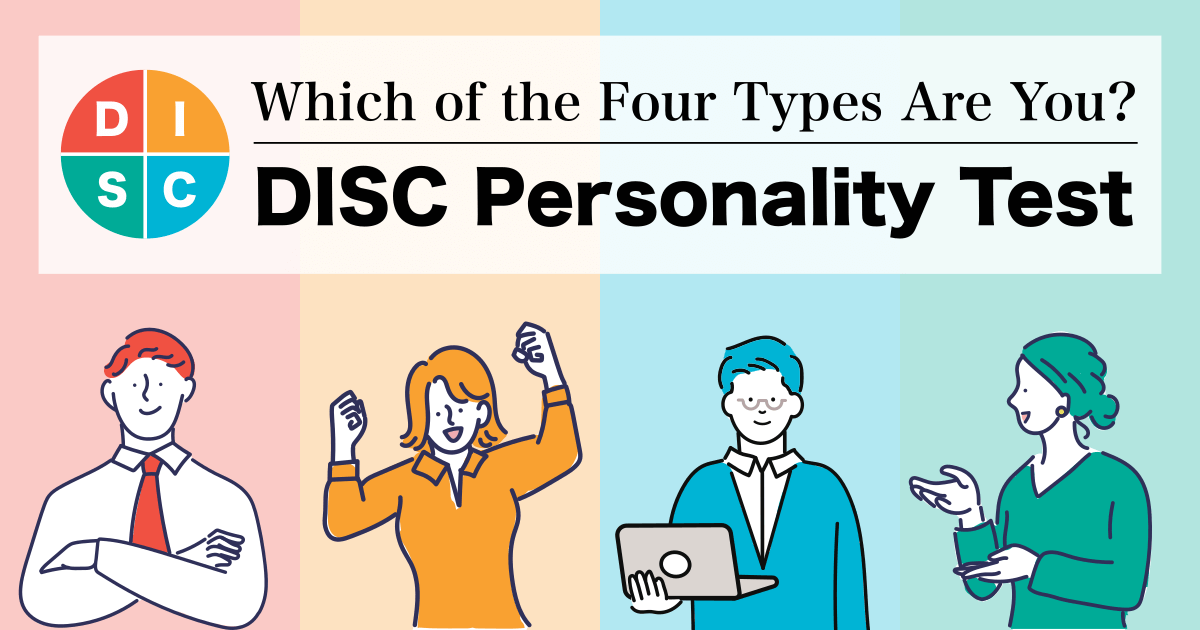
DISC theory categorizes people into four types: Dominant, Influential, Steady, and Conscientious. Take this test to find out which type you are.
DISC theory is a psychological model that classifies people’s behavior into four types: D (Dominance), I (Influence), S (Steadiness), and C (Conscientiousness). It was developed in the 1930s by William Moulton Marston. DISC helps individuals better understand their behavior and interpersonal relationships, and it is particularly useful for improving communication and teamwork in the workplace.
D Types are decisive and exhibit leadership. I Types are friendly, energetic, and charismatic. S Types are cooperative and value stability. C Types pay close attention to detail and strive for accuracy.
By understanding each type and responding accordingly, you can build better relationships.
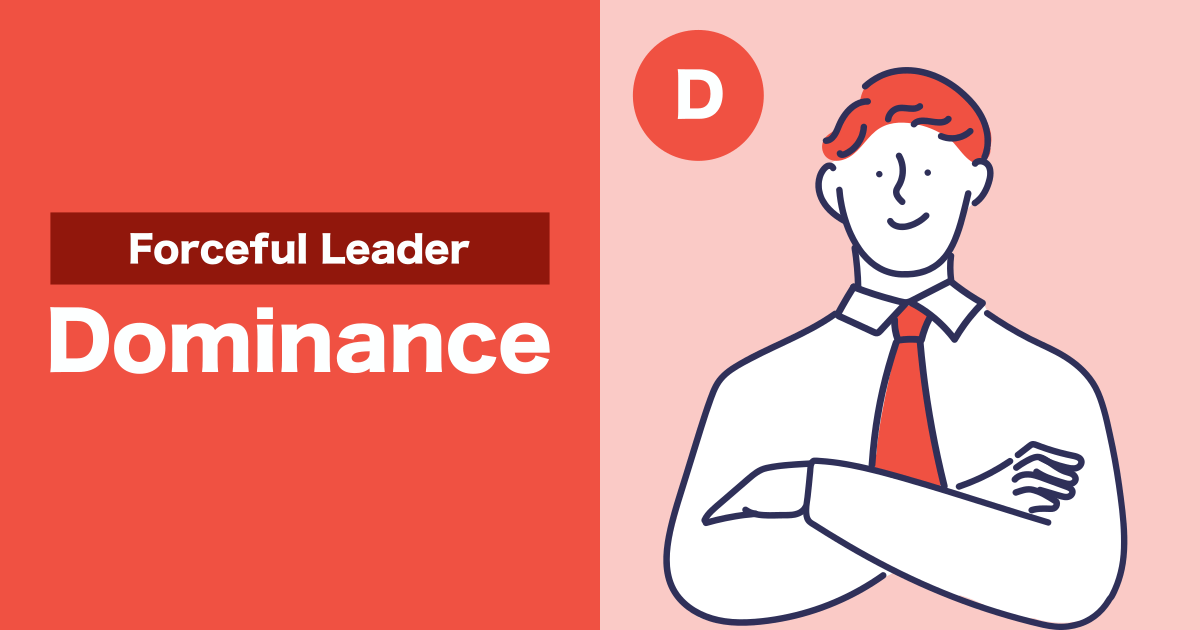
D Types (Dominance) are confident and assertive, taking the lead in achieving goals. They possess strong decision-making skills and actively tackle challenges. Their competitive nature inspires others, although they may sometimes come across as overpowering.
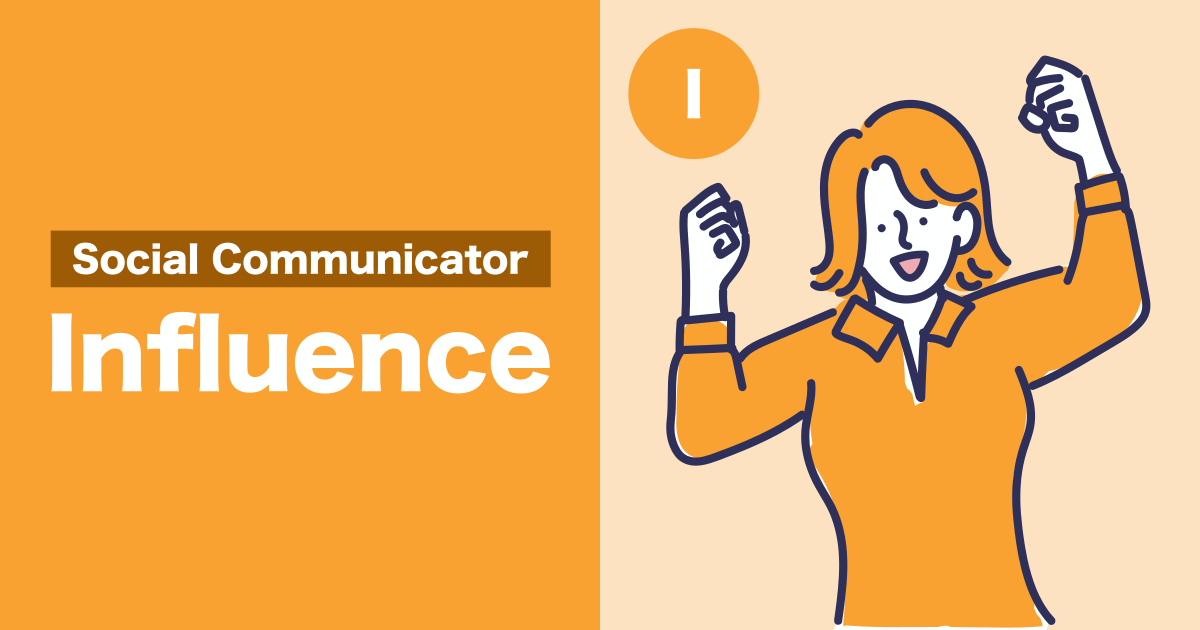
I Types (Influence) are sociable and great communicators. They lift team spirits and create a positive atmosphere. Their ability to connect with people and empathize with others’ feelings fosters harmony within groups.
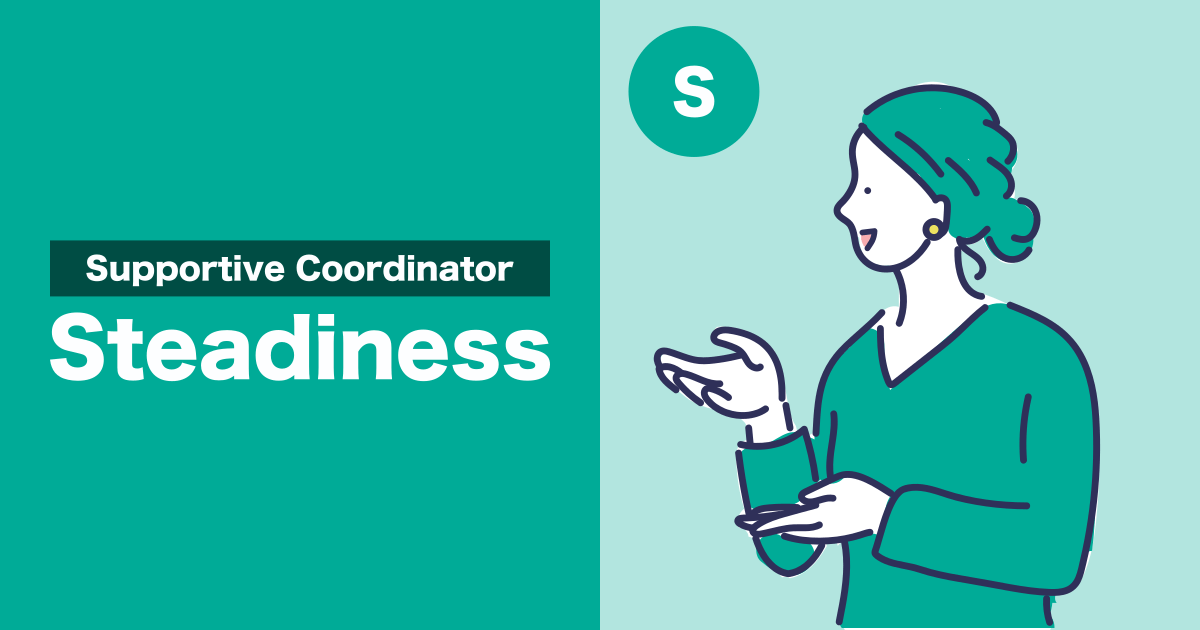
S Types (Steadiness) are calm, reliable, and contribute to team stability. They are patient and handle stress with flexibility. By understanding others’ needs and emotions, they strengthen team unity.
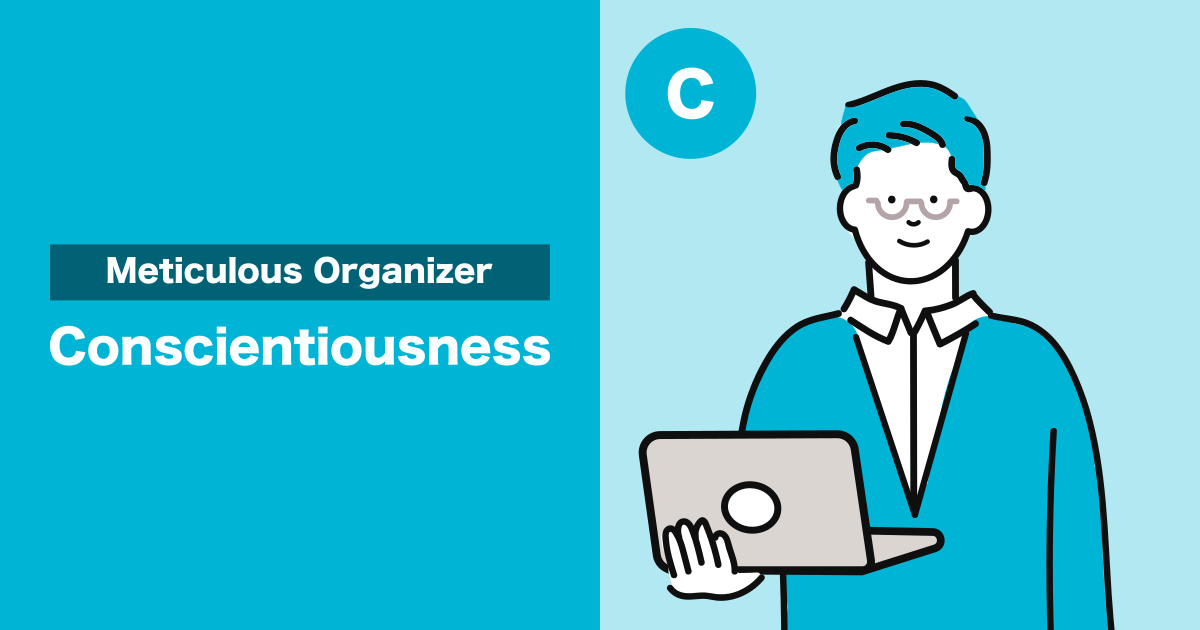
C Types (Conscientiousness) are methodical and precise, adhering to rules and procedures. They support efficient operations by focusing on detail and accuracy, avoiding risks, and contributing to the team’s success through careful planning.
A. The DISC assessment is used to enhance self-awareness, improve communication with others, support team building, and develop leadership.
A. The results help you understand the characteristics of each type, offering insights into yourself and others to build better relationships.
A. Knowing your strengths and behavior style can guide you in choosing the right work environment and career path.
A. By understanding your behavior style and that of others, you can lead more effectively by adapting your approach to different situations.
A. Deeper self-awareness allows you to set clear goals for behavior improvement and skill development, fostering personal growth.
A. Understanding others’ behavior styles allows for smoother, more harmonious communication, improving interpersonal relationships.
DISC theory was introduced in the 1920s by psychologist William Moulton Marston, who also contributed to the development of the polygraph (lie detector).
The DISC assessment is widely used in business, particularly in leadership development and team building.
While DISC can be applied across cultures, cultural backgrounds can subtly affect results. For example, collectivist cultures tend to see more S Types.
DISC is not only useful for individuals but also as a tool for improving team communication. Many companies use DISC to understand and improve team dynamics.
DISC results can change based on life experiences or environmental changes. Taking the assessment regularly can help track your growth and changes.
Some DISC tools are customizable for specific industries or purposes, such as versions tailored for sales or customer service.
DISC theory was introduced by American psychologist and inventor William Moulton Marston. His 1928 book, 'Emotions of Normal People,' laid the foundation for DISC theory. Marston categorized human behavior into four main types: Dominance, Influence, Steadiness, and Conscientiousness.
Initially proposed as a theoretical framework in clinical psychology, DISC theory was later widely applied in business and organizational psychology. While Marston did not develop DISC into a practical assessment tool, his theory provided the basis for others to create the tools used today.
By the 1950s, DISC-based assessment tools were developed and widely used to evaluate individual behavior traits. These tools gained popularity in business, education, and personal development, becoming integral to leadership development and team building.
Today, various DISC assessment tools are available, including online assessments and customized versions. This allows companies to use DISC for corporate training, personal growth, and other purposes.
In addition to DISC theory, William Moulton Marston is known for his involvement in the invention of the polygraph and for creating the Wonder Woman character for DC Comics.
The DISC assessment helps you understand your behavior style and provides key strategies for improving communication with others. By understanding the traits of each type, you can leverage your strengths and foster mutual understanding with others. This will help you build smoother and more cooperative relationships, both at work and in daily life.
Additionally, the DISC assessment encourages flexibility in your behavior, which can be highly effective in leadership and team building. Use your DISC results to guide your personal growth and enhance your relationships with others.
We hope this assessment serves as a valuable guide for your future life and career.
A DISC test can greatly affect how productive one or more people are at home and work. But it's mostly used at work to help companies in many ways, including hiring new workers, which is the most important.
The test looks for the most helpful and successful traits at work and shows which ones a person has and which don't. Dominance, Influence, Steadiness, and Conscientiousness are the words that make up the term DISC. The DISC model focuses on these four main personality types.
These four types are good for figuring out how a person might work in a certain job because they apply to everyone. To get the most out of DISC test results, you need to break them down into these four key profile groups and learn what each means.
In the following parts, we'll talk quickly about each of the four types to give you an idea of what each one is about. From there, the rest of the book will discuss how to understand DISC tests, how to use the information you get from DISC tests, and the pros and cons of DISC tests that every company should be aware of.
Most of the time, people who are born leaders will have this trait. It doesn't mean they are better than others; they are willing to risk a lot to be great. People with the authority trait are very goal-oriented, focusing most on success in everything they do. They also tend to do very well when they are under a lot of stress.
Every company wants to hire someone who can keep working hard even when stressed. People with strong personalities often have a lot of confidence, which is another important trait. So, the authority trait, in general, emphasizes the traits that can ensure everything is done with the most effort, no matter how important it is.
The influence trait is a person's ability to talk to and affect others. They don't care as much about getting work done by any means possible as ensuring their workplace is safe and healthy. It can be hard to find people with this trait, especially in big companies with many workers.
On the other hand, people with the encouraging trait are great tools no matter how big a company is because they can help keep a good work culture. People with the affected trait care a lot about others and are in touch with their feelings. This is a pro and a con since they can let their emotions get the best of them at the wrong time.
Aside from this drawback, companies need workers with strong impact personalities because being able to convince and influence others is key to success. Without them, a work setting can quickly become unproductive, and getting back on track is difficult.
The steadiness trait is all about how trustworthy and reliable a person is. These are the kinds of people who will gladly take on a last-minute task, and they always put the health and safety of their coworkers first. It's the best trait for someone who can get along with others and make the team stronger. People who have the quality of being steady are often very honest.
They won't make up reasons why they can't go to work or don't have to try very hard. And if they have a good reason for being unable to work, they will tell you so that everyone is on the same page. The steady trait often thinks about every part of working together, which makes its expertise in that area valuable for any company.
Conscientiousness is mostly about a person's ability to overcome problems using different problem-solving skills. These people will take the time they need to solve problems in ways that are well thought out and helpful in multiple ways. Both conscientiousness and control are alike in that they both want to do well in everything they do.
But the first one cares much more about being right than the second one. Because of this, you can usually count on people with the conscientiousness trait to work very well on their own. The level of the work they do will also be good. This trait's three most important parts are accuracy, competence, and regularity. Together, they constitute an important part of the DISC test meaning.
To find the best candidate for a job, you should include a DISC test in the hiring process. However, this doesn't mean you can't find good candidates without a DISC test because you can. But, based on your use, a DISC test can give you useful information.
Choosing the best person for a job can be hard when several good prospects have different backgrounds, skills, weaknesses, and experience levels. Sometimes, the results of a DISC Test can make a big difference in deciding who to choose. And even if you don't have trouble finding good people for open jobs, a DISC test is still useful in a general way.
It gives you a greater understanding of how your top options will fit into different jobs, which is important information before hiring anyone. A DISC test is a great way for possible companies to quickly find out as much as they can regarding a potential new hire. Since this is a broad idea, we'll discuss how companies can use DISC tests most successfully in the next few parts.
A high DISC number can show a job candidate's strength when being dominant, influential, steady, and responsible. The better a candidate's traits are in a certain trait, the higher their score. On rare occasions, a candidate may have high scores for one trait but lower scores for others.
It doesn't mean they don't have any of the traits with a lower number. Still, the trait with the highest score is often the one that stands out the most. So, it will have the biggest effect on the surroundings at work. The other traits can still show up occasionally, but you will probably pay less attention to them most of the time.
A low DISC number shows that a job candidate doesn't have much of a certain trait. Most people have more than one strong trait, which can happen when two or three traits are stronger than one. One trait's number might be lower than others for many reasons.
It could mean that the job candidate doesn't use that trait much and isn't very good at it because of that. On the other hand, they might not have that trait by nature. Since everyone has skills and flaws, it's unsurprising to see low scores on a trait in a candidate's DISC results.
The most important thing you can learn from a low DISC score is where an employee needs to improve the most. It also gives you an idea of what to expect from them, another important point we'll discuss below.
Employers can use the information they get from a job candidate's DISC assessment results to determine if the candidate is a good fit for a certain role. The main way is to look at the qualities a candidate got the best and see how those qualities fit into the job.
If the candidate's traits fit well with the job, that's a good sign that they'll be a good fit. And let's say that the traits don't always match the job exactly. If that's the case, the company can try to make the job fit the candidate if they like everything else about them.
But during this part of the hiring procedure, looking at more than just the job's general description and duties is important to decide if a candidate is a good fit. Instead, an employer should consider the regular and occasional jobs required and compare those to the candidate's DISC test results.
The job description and list of duties don't always say exactly what a person must do to get the job. So, when a company looks at a candidate's DISC survey results, the more exact they are, the better they can tell if the candidate is right for the job.
As a company, if you have an applicant for employment, take a DISC test before an interview. You may utilize the information you get from the test to plan your conversations. Even though this takes time for each person, it is a proven way to ensure you choose the best person for the job.
It lets you focus on certain things during each conversation and gives you the best possible knowledge. One example is if someone applies for a job that requires them to work in teams. Let's say the candidate has a very high score for the power trait, and their resume shows that they have worked on team projects before.
If this is the instance, you can request them what kinds of team projects they have worked on and what they contributed. On the other hand, if they score high on steady and careful, you can ask them what they think it means to be reliable.